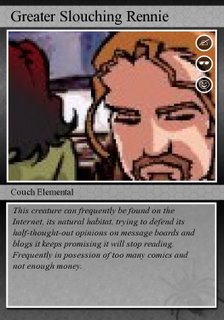At the moment, on the computer I have at my house, I can do a huge variety of things. I can play games, watch TV, watch DVDs, talk to people by voice, video or text, listen to music, create music, do my shopping, read a book, really anything I can think of, on this one unit.
The thing is, though, I don't really want to.
I want to watch TV on the TV I have in my front room. It's better positioned than my computer, closer to the kitchen for grabbing drinks and snacks, and has a lovely couch in front of it. Also, the screen might be lower resolution, but it's bigger.
I want to listen to music on my stereo, or on headphones. The computer's speakers aren't big enough for excellent sound reproduction, and the computer isn't portable enough for me to listen to music while walking.
I prefer being able to walk around with my phone. I'm unfortunately someone who has the habit of wandering around as I talk, and headphones connected to a computer wouldn't let me do this.
So although I
can use one device for a whole bunch of needs, I'd like the
option of something else.
For a long time, people have talked about "convergence technology": communications and entertainment technology uniting to provide devices that can do everything. The computer was through of as the motherlode of convergence technologies, because computers are designed to be so multipurpose. The problem was (and still is) that a device that can do everything probably isn't great at doing any one thing. A computer makes a passable book, stereo, TV and phone, but is nowhere near as good at doing these things as a book, stereo, TV and phone are.
That said, there are things that computers can do that we want our books, stereos, TVs and phones to do. Which is where we come to what I think is the replacement for convergence tech: Modular tech.
Modular tech is devices that talk to each other. Modular tech is downloading music on your computer and putting it on your mp3 player, or playing it through the amplifier and speakers on your stereo. Modular tech is listening to radio stations from other countries as easily as you listen to local stations, on the same equipment you use to listen to local stations.
Convergence technology is putting all your entertainment and communications needs on your computer.
Modular technology is putting your computer into the devices you use to communicate and have fun.



